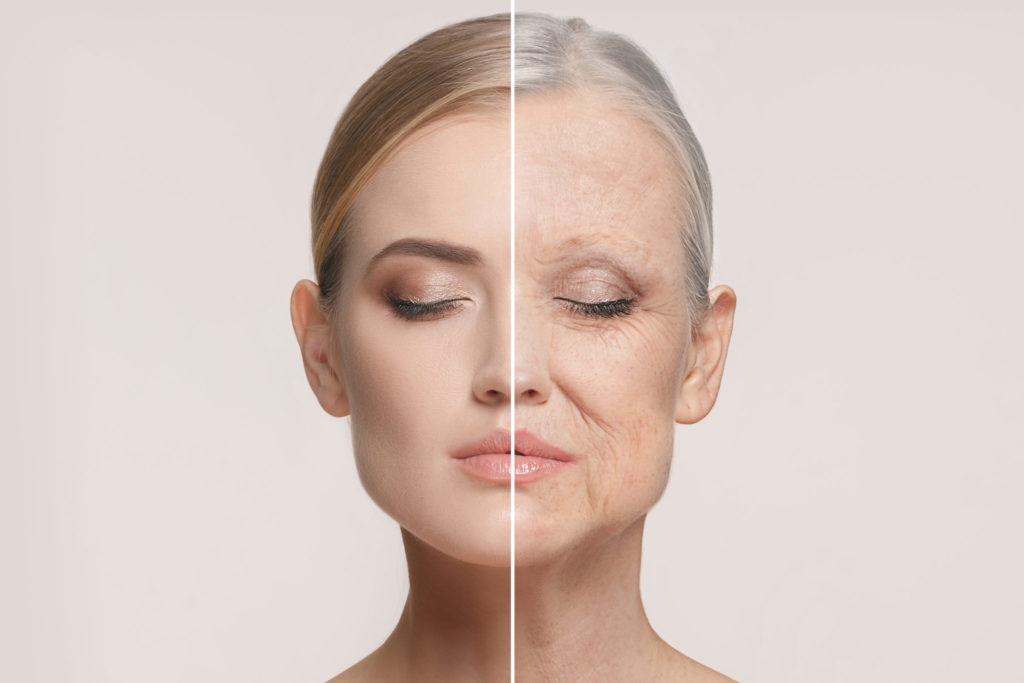Since the beginning of time, humankind has longed for a fountain of youth. Now, our obsession with wellness is spilling over into the pursuit of permanence.
Backed by billions in funding, anti-aging startups are seeking to stave off mortality.
- According to CB Insights, investors sunk more than $850M into aging and longevity startups in 2018.
- The global anti-aging market is expected to exceed more than $271B by 2024
When it comes to preventing aging, our saviors break out into two groups: healthspanners (longevity scientists) and immortalists (Silicon Valley royalty).
Healthspanners hope to slow the aging process, allowing for a longer, higher-quality existence. They don’t think we’ll live forever, and they don’t want us to. Instead, healthspanners are seeking to identify and block the causes of terminal diseases. In their perfect world, we’ll live a healthy, full life followed by a quick and painless death.
Immortalists, on the other hand, think it’s possible—even likely—that we can use technology to prevent death. Like algorithms and advanced AI, they believe they can program the human body, creating a future where evolution is controlled by man and not by nature.
The disease of age: From a biological perspective, by living longer, we’re overstaying our welcome on Earth. Technically, we have one job — to pass on our genes. After that, we’re just taking up space. So, when we hit 30, the aging process ramps up and each day moves us one step closer to our last.
However, understanding the specifics of the aging process is much more complicated. For starters, despite an abundance of research, doctors and scientists aren’t sure whether longevity is determined primarily by our genes or our lifestyle and environment.
What we do know, though, is that senescence—the process of deterioration with age—gets us all in the end.
Over time, our cells become senescent and stop repairing themselves. The body’s inability to heal causes inflammation, which leads to chronic maladies like heart disease, Alzheimer’s, and arthritis. The consensus view tells us that each of these diseases are separate and should be treated individually. However, many scientists believe that aging is the primary cause of many chronic diseases. If that’s the case, and we can switch off senescent cells, we may be able to “cure” aging.
The “God” pill: According to billionaire investor Jim Mellon, longevity is the greatest investment opportunity of all time, asserting: “I’m hoping that this stuff works on me as well as on my portfolio.” According to Mellon, there are three areas set to produce breakthroughs in the coming years. Metformin, a diabetes drug, appears to help people live longer. Rapamycin, a drug that’s extended the lifespan of yeast, worms, and mice, is gaining traction. Meanwhile, stem cell treatments and gene therapies are proving to be effective yet more costly.
Hoping to cash in on the next big thing and personally partake in the products, prominent entrepreneurs and investors are backing anti-aging companies.
- Calico, an Alphabet-backed anti-aging company with $2.5B in funding, has remained fairly quiet since its inception in 2013.
- Juvenescence is armed with $165M in funding to create “senolytic” drugs that rid the body of cells that have stopped dividing and can cause damage to other cells.
- Unity Biotechnology is developing a drug that targets senescent cells. The company, backed by Jeff Bezos, Peter Thiel, and the Longevity Fund, went public last year and is valued at $350M.
- Life Biosciences, an “age-reversal” startup, has raised more than $75M to combat age-related decline.
- Samumed, a company that uses stem cells to regenerate hair, skin, bones, and joints, has raised $650M and is valued a $12B.
- BIOAGE has raised $33.9M from the likes of Andreessen Horowitz, Khosla Ventures, and Felicis Ventures to treat aging.
- Elysium Health ($71M funding) creates direct-to-consumer health products based on aging research.
A dose of reality: “For decades”, the New Yorker writes, “the solution to aging has seemed mere decades away.” But we’ve yet to see the kind of game-changing innovation the industry has hoped for.
While some studies have produced results in lab animals, there has been little in the way of clinical trials. In fact, the FDA doesn’t categorize aging as a disease, which further complicates the path to putting an anti-aging pill on the market. In the meantime, a lack of regulation allows dietary supplements to make unproven claims about their impact on longevity, leading to both hype and confusion.
Worse, a 2008 deal that saw GlaxoSmithKline acquire Sirtris, an anti-aging startup, for $720M soured when GSK halted the research two years later, citing underwhelming results with possible side effects.
As one paper concluded, healthspan extension companies are “risky and most likely to fail.” Still, the lure of living forever is too strong to subdue the ambitions of entrepreneurs, scientists, and billionaires committed to finding the proverbial fountain of youth.




